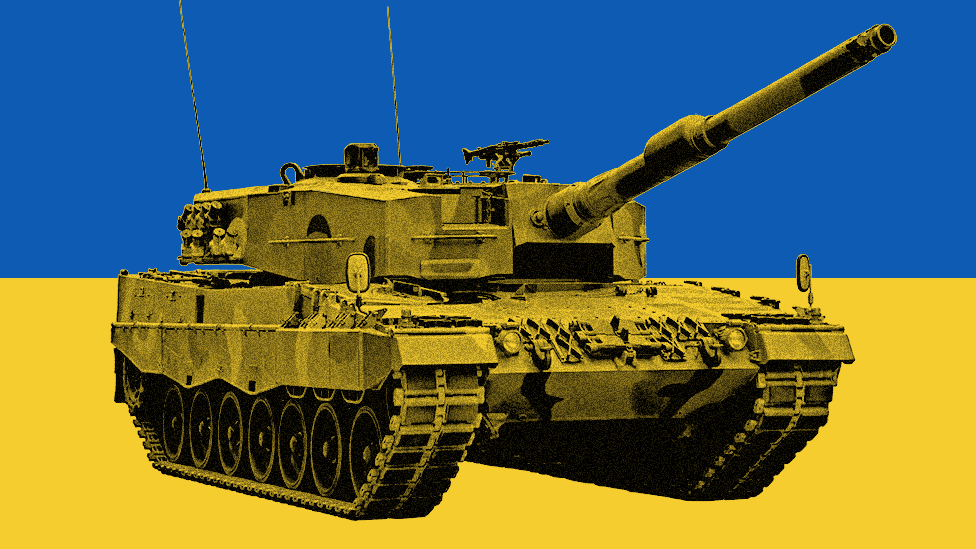Ukraine says it repelled Russian bid to cross border
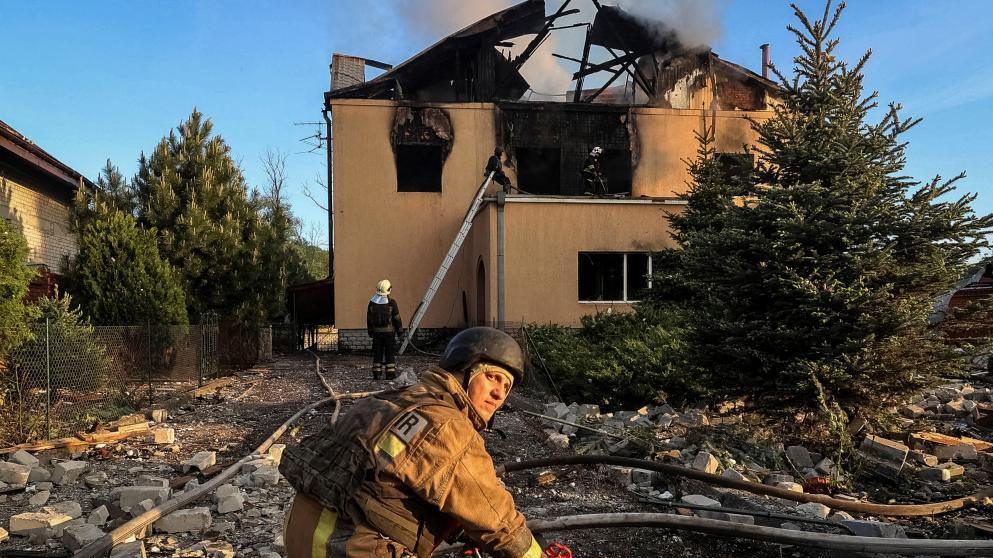
Three children were hurt in a separate attack on the regional capital Kharkiv
- Published
Ukraine says it has repelled a Russian armoured attack in the north-eastern Kharkiv region, after Moscow's forces launched an incursion across the border and sought to break through defensive lines.
Kharkiv regional head Oleh Syniehubov said Russian reconnaissance groups had tried to penetrate the border, adding that "not a single metre has been lost".
"Russia has launched a new wave of counteroffensive operations in the Kharkiv sector," said Ukrainian President Volodymyr Zelensky.
Also on Friday, a huge fire broke out at an oil storage depot in Ukraine's occupied Luhansk region after what Russian-installed officials said was a Ukrainian strike. Three people were killed in the attack, they added.
Ukrainian commanders have been expecting a summer offensive for some time, possibly even a bid to capture the regional capital, Kharkiv. But officials are adamant Russia does not have the resources to do so.
Russia had the capability to aggravate the situation in border areas but not the ability to capture Ukraine's second city, said the head of Ukraine's centre for countering disinformation, Andriy Kovalenko.
Ukrainian reports suggested Russia was trying to create a 10km buffer zone for its Belgorod region, after a series of Ukrainian cross-border attacks.
Friday's small incursions over the Russian border form a familiar yet disturbing axis for Ukrainian forces.
The defence ministry in Kyiv said the attack started with the heavy bombing of the town of Vovchansk "using guided aerial bombs" with the support of artillery. Then, small Russian “scouting groups” moved in across the border, reportedly in several places.
The local head in Vovchansk, 75km (45 miles) north-east of Kharkiv, said the town had come under heavy attack from the early hours of Friday and civilians were being evacuated. Some 3,000 people live in Vovchansk and at least one person was killed and five more injured in the barrage, according to Kharkiv's regional leader.
"At approximately 05:00, there was an attempt by the enemy to break through our defensive line under the cover of armoured vehicles. As of now, these attacks have been repulsed, fighting of varying intensity continues," the defence ministry said.
President Zelensky said the Russians had been engaged "with our troops, brigades and artillery", but added that a fierce battle was under way.
Civilians were being evacuated from the Vovchansk district while reserve troops move in, officials added.
In the occupied Luhansk region, Russian officials reported that Ukrainian forces had attacked the city of Rovenky, killing three people and injuring seven.
The Russian-installed health ministry said four of those injured were in a serious condition.
"Because of the shelling, the oil depot was engulfed by flames and nearby houses were damaged," Russian-installed Governor Leonid Pasechnik wrote on Telegram.
It was the second such attack this week. On Wednesday, an attack on another oil depot in the region injured five people.
Ukrainian bloggers and Telegram channels reported Friday's attack and posted pictures of a large blaze.
However, there has been no comment from Ukrainian officials.
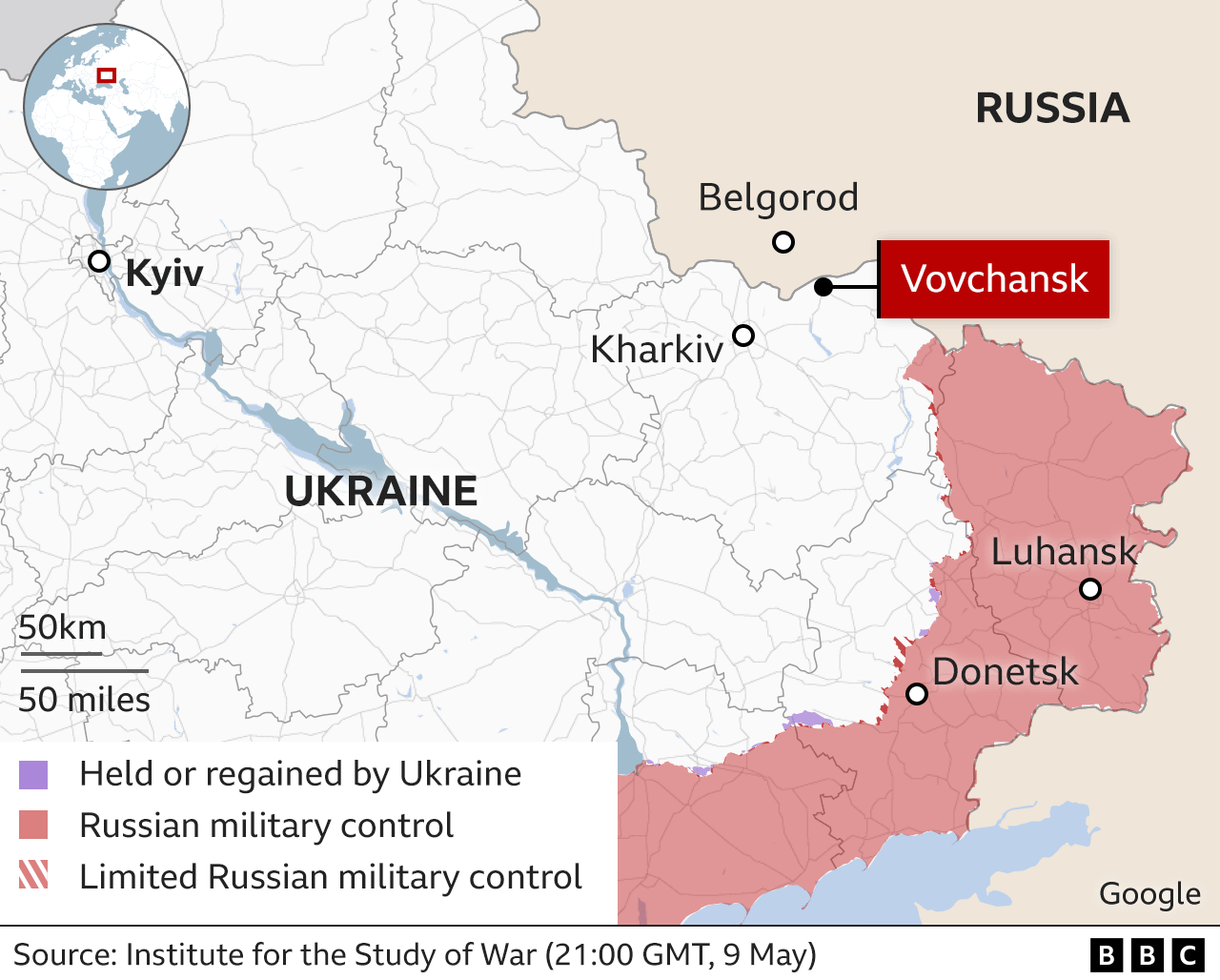
On Friday, the US announced a new $400m (£319m; €371m) military aid package for Ukraine.
It will be Washington's third instalment of aid to the country after months of political deadlock and delays - adding to the previous package worth a total of $7bn sent in late April.
In a statement, US Secretary of State Anthony Blinken announced that the "urgently needed" aid would include air defence munitions, artillery rounds, anti-tank weapons and armoured vehicles.
On Friday, the White House gave its assessment of the situation, with National Security Spokesman John Kirby telling reporters the US thinks Russia "will make further advances in the coming weeks to try and establish a buffer zone along the Ukrainian border".
However, he said that Washington was confident in Ukraine's ability to withstand such attacks, and would be "working around the clock" to ensure the country had all the necessary tools and weapons to do so.
Moscow has been looking to capitalise on the delayed arrival of US ammunition and weaponry by continuing to push in the eastern Donetsk region.
The return of heavy fighting in the north-east further illustrates Russia's growing confidence and ambitions.
The deputy chief of Ukraine's military intelligence, Maj Gen Vadyn Skibitsky, told The Economist last week that Russia was gearing up for an assault on both Kharkiv and the northern region of Sumy. That warning was repeated by the commander of Ukrainian ground forces, Lt Gen Oleksandr Pavliuk.
Tens of thousands of Russian forces are said to have gathered on the border.
You could be forgiven for seeing a repeat of 2022, when Russia failed to capture Kharkiv and Sumy in the early weeks of its full-scale invasion. Russian forces did occupy the border town of Vovchansk for several months, until they were pushed out in September 2022.
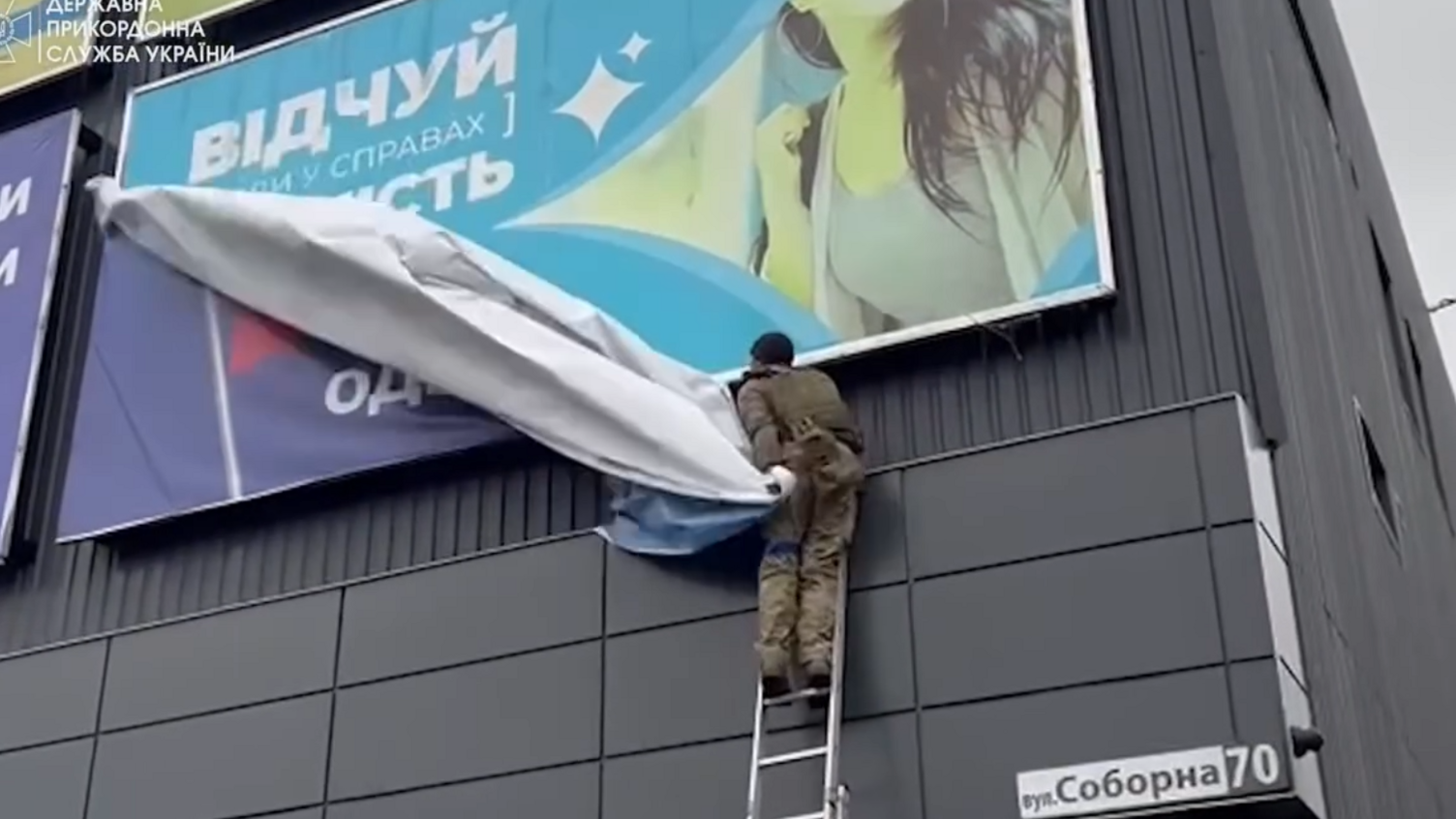
Vovchansk was liberated by Ukraine in 2022 after months of Russian occupation
Outwardly at least, officials and generals do not think either of the two regional capitals could fall.
Russia was unable to conquer either city when it had a larger, better-trained force than it does now. Ukrainian sources estimate around 90% of that original 150,000 army are either dead or wounded.
Military commentator Oleksandr Kovalenko has pointed out that Russia needed some 80,000 troops to capture the small eastern city of Avdiivka last February, after months of bombardment. Big cities such as Sumy and Kharkiv were on a completely different scale, he said.
Secondly, Russia has talked about creating a buffer zone between its Belgorod region and Ukraine.
That is because Ukrainian troops have continued to launch artillery strike on Russian territory, to the nervousness of some Western allies.
Related topics
- Published31 March 2024
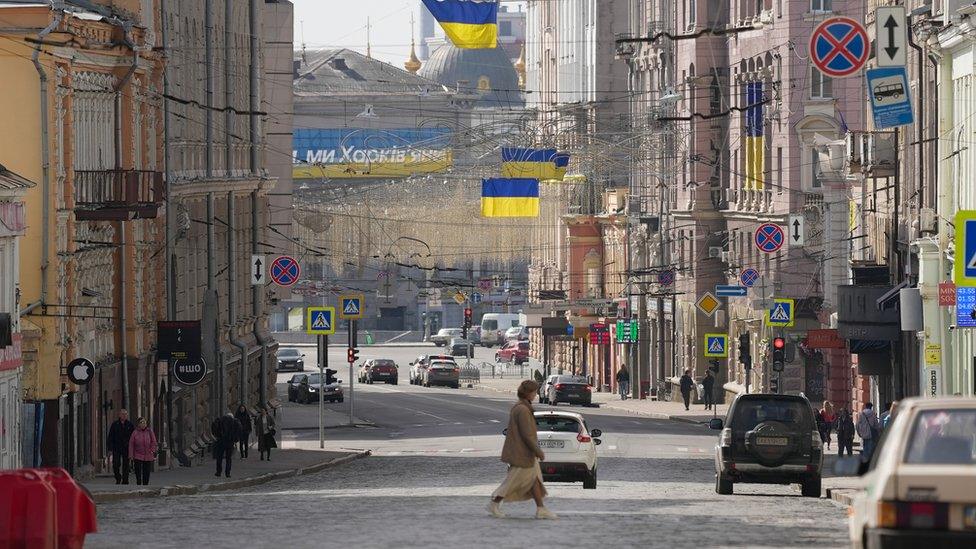
- Published8 May 2024
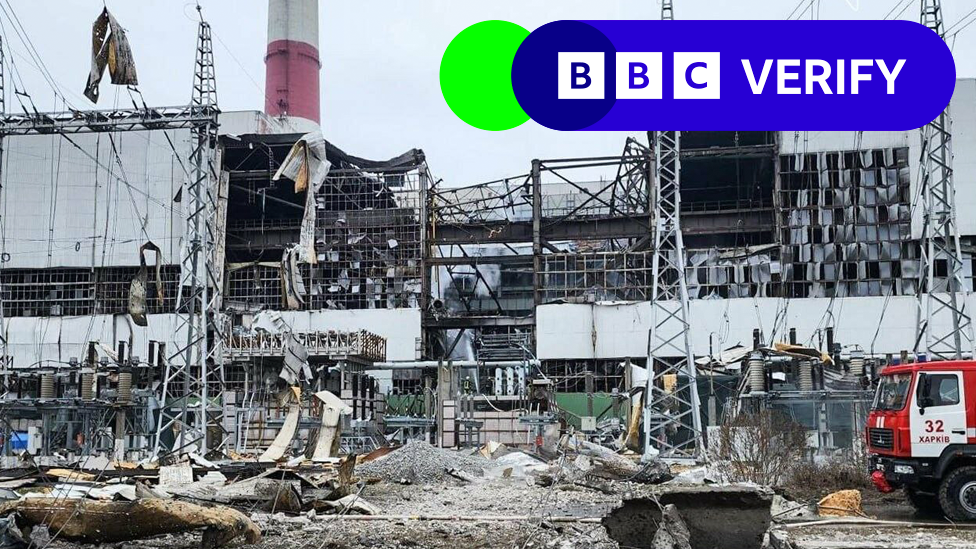
- Published17 February
